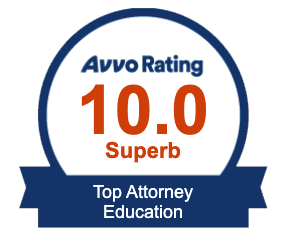When special education disputes cannot be resolved by informal discussions then what options do parents have to secure the rights of their children under special education laws. There are two otions that do not require the services of a special education attorney. First, there is a State complaint that you can file with the Georgia Depaartment of Education, Divison for Exceptional Children. The Georgia Department of Education, Division for Exceptional Children can provide parents with a form to complete so that they can file a State complaint. There are simple rules for filing a State complaint. You state what rights you believe have been violated by the school system and describe the problem. You describe the solution or action that believe will resolve the problem. You state whether mediation wil resolve the problem. The State complaint must be filed within one year from the date you believe the violation of your rights occurred. The Georgia Department of Education has 60 days under ordnary circumstances to investigate the State complaint and enter a resolution. The investigation may include, but is not limited to, review of the educational records of your child, communicating with the parents and school district personnel, and consulting third parties and witnesses. The other option is to file a complaint with the United States Department of Education, Office for Civil Rights. You can also obtain a form from the Office for Civil Rights to complete and file that is similar to the one described as the State complaint. You must file the complaint under most circumstances within 180 days of the date you believe the violation of your rights occurred.
What about requesting a due process hearing? I would recommend this process for parents under narrow circumstances. My first tip is to hire an experienced special education attorney first before you begin the process. I have been contacted by several parents over the years who filed a request for due process only to find that it was very complicated and then lost the case. Most parents are unprepared for the amount of work and legal knowledge that is necessary to successful pursue a due process hearing. Due process is challenging for a number of reasons. The process is procedurally cuumbersome and complicated. Knowledge of adminstrative procedural rules, evidentiary rules, legal precedent and caselaw, and educational terminology is critical. Most lawyers shun from taking special education cases because it is so complicated and requries expertise in the areas of special education and special education laws. A special education attorney can review the merits of your case and determine if there is a likelihood you may prevail at the hearing. This is why I strong recommend that you contact a special education attorney before you file for due process. If you wait until just before the hearing to find out that the process is very complicated and then contact a lawyer, it may be too late.
I understand that most parents cannot afford a retainer to pay a special education attorney to handle their case. But it may be worth paying a special education lawyer to at least review the merits of your case first to give you an opinion as to the strengths and weaknesses of your situation. There is no substitute for experience. I do not try to repair my own vehicle or make major repairs to my home because I do not have the knowledge or experience to do so. Similarly, you should consult with an experienced lawyer in special education so that you can be given an objective and realistic appraisal of your case.
The second tip is that if you decide to proceed with an experienced attorney then at least bring a trained advocate to the hearing. Until the State Bar of Georgia or another authority sets specific rules and guidance whether a nonlawyer can represent a parent at a due process hearing, it is likely that an advocate is not permitted to represent you at the hearing. But she can at least give you some ideas and points of how to examine witnesses and present your own case. A trained advocate is knowledgeable about special education matters and can assist you in understanding the jargon of educators. You will need this guidance at a due process hearing.
In sum, it is much better to consult and hire a special education attorney before you request a due process hearing than to try to proceed on your own. If necessary, retain a trained special education advocate to advise and help you at the hearing. This may not be the best option in most cases but it may be the only one you can afford. The last option is to proceed on your own. I would strongly recommend against this course of action. Again, this is my opinion and you are free to disagree. If you do, let us have a discussion on this topic and see if we both can lern from each other.

